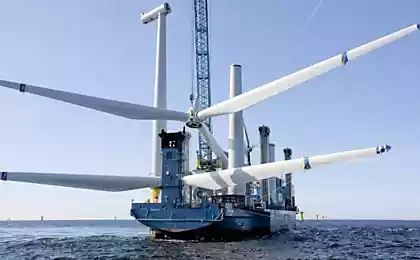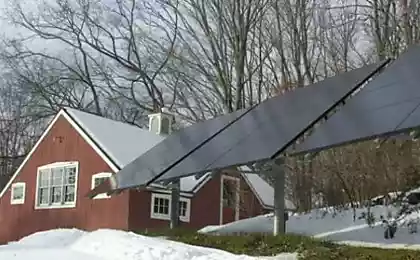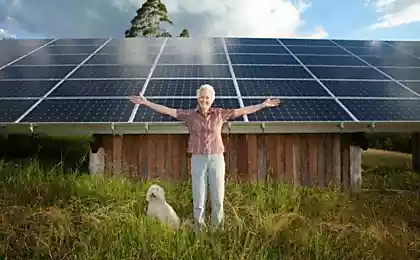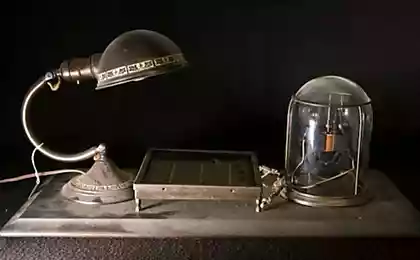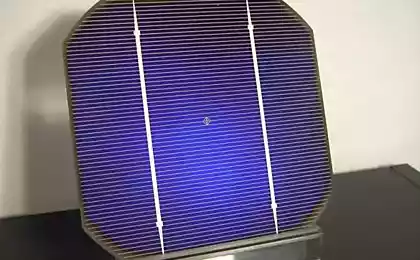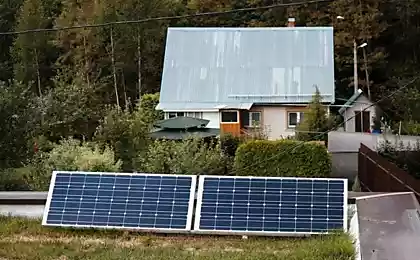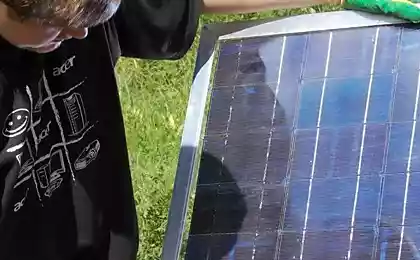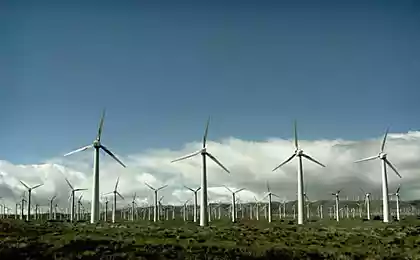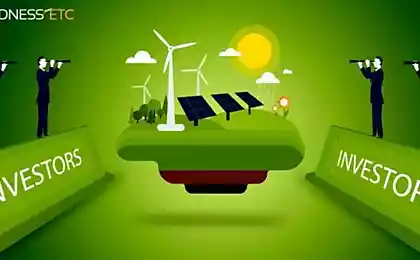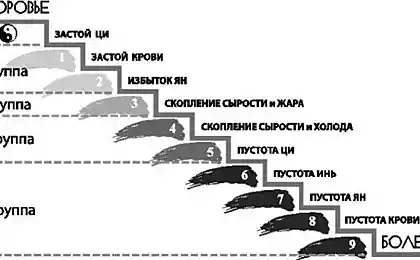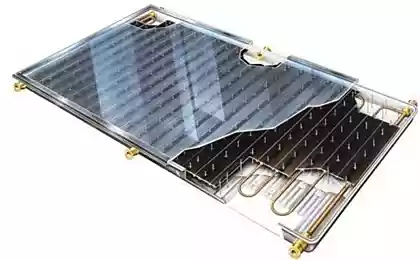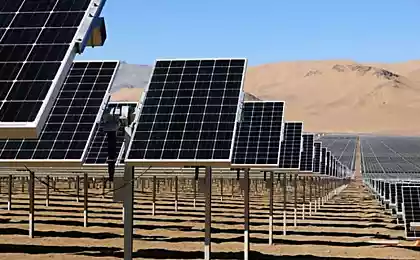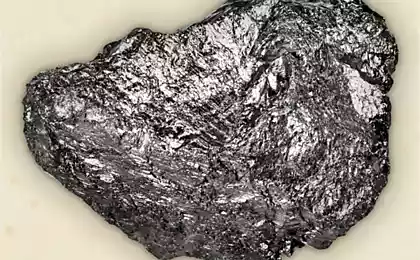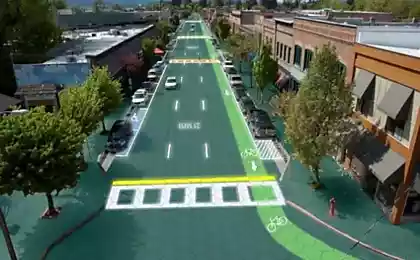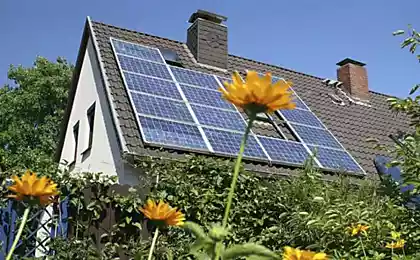422
Prospects of "green" energy
Buying a solar panel and electric car in 2020, the average European 12 years will receive electricity free of charge.
In the next 10-20 years, centralized electricity generation from fossil fuels in the EU will die, and a powerful power plant will be history. This is the forecast of experts of UBS. It is the largest private Bank in the world, whose assets exceed $1.5 trillion, and one of the leading investment agencies of the world. His predictions are partly become a sort of self-fulfilling prophecies and even so they deserve attention.
So as follows from calculations of the Bank's analysts, Europe is on the verge of a paradigm shift of electricity consumption and generation. "Electrical energy is ceased to be the product of the production of exceptionally large centralized enterprises that belong to large structures. By 2025, anyone will be able to produce and save energy," the report said. It will be "green" and will receive a competitive price, that is, becomes no more expensive or even cheaper than purchased from the utility companies, hitherto considered natural monopolies, experts say, calling investor clients to "support the revolution".
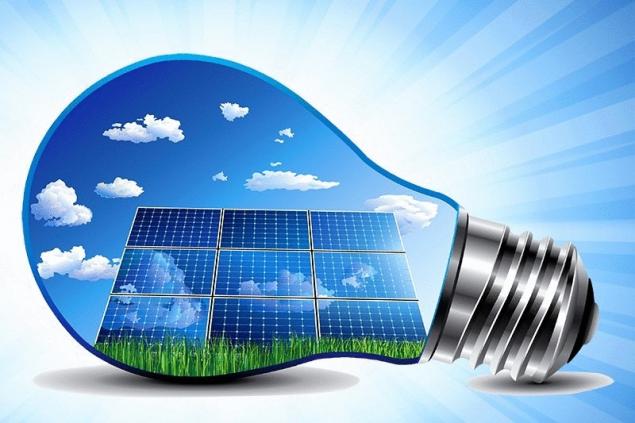
According to them, three factors — available electric vehicles, progress in the field of solar energy and a substantial reduction in the cost of batteries will lead to a complete restructuring of the current model of power supply. If not burying the traditional model of power generation based on coal and natural gas, irrevocably and drove it to the ghetto.
Large power stations will start to disappear in the relatively near term: they are too great, their power too inflexible and do not meet the needs of the future electricity consumption. Rejection of them is due to the fact that for households and industrial facilities would be cheaper to obtain and store the excess for themselves. As noted in the report, solar power has become quite competitive. Its biggest drawback was the inconsistency of supply, but here in the game will soon enter the electric vehicle and battery high capacity.
By 2020, the electric car a mass almost equal in price with the machine, equipped with a traditional internal combustion engine. But he will save up to 2 thousand euros per year in fuel cost, that is, will start to pay off almost immediately after the purchase without any significant "upfront investment". This will ensure rapid growth in popularity of electric vehicles, especially in countries with high fossil fuel prices. By the way, total cost of ownership Tesla Model S over three years has caught up with the cost of Audi A7. Moreover, Tesla plans to release a new mass models with price of $35 million in 2017.
Energy companies and utilities will not disappear. But their role will be reduced to close remaining gaps, for example, cover the morning peak consumption. A smart distribution network will enable more flexible and efficient use of energy.

The synergy of these two factors — the mass production of vehicles and batteries will lead to the fact that around 2020 in the European energy system will fracture. The expected decline in prices of imported food sources will lead to exponential growth in demand for stationary batteries, designed to collect a surplus of energy in buildings, according to UBS. "Energy storage will become financially attractive to households in combination with solar power and electric vehicles. As a consequence, we expect transformational changes in domestic and automotive sectors," the document reads. By 2020, the average consumer in Germany, Italy, Spain and most of the rest of Europe the acquisition of a home solar power plant with a 20-year life cycle, coupled with a small battery and electric car will pay for itself in six to eight years. And that's even without any government subsidies for solar energy. In other words, buying the system in 2020, the average European 12 years will receive electricity free of charge.
And another bonus: the price reduction of batteries and solar panels will make electric vehicles cheaper than conventional cars in most European markets. Moreover, conservative scenario, the UBS call 10% of the car market by 2025 the market Expansion of electric vehicles will lead to further improvement of battery technology, and the cycle repeats itself. The International energy Agency believe that the release of the mark of three quarters of sales by 2050 will keep global temperature warming below two degrees Celsius.
At the household level the system will work like this: the electric car is charging at night, solar panels provide electricity during the day, and excess energy will accumulate in the battery that can be discharged in the evening to cover the remaining needs of the house.
Nevertheless, the Bank does not expect energy companies and utilities will disappear. However, their role will be reduced to close remaining gaps, for example, cover the morning peak consumption. A smart distribution network will enable more flexible and efficient use of energy. In General, it resembles a cross between the Internet, where load can be shifted from server to server, and P2P networks, where "server" can be any household that has an excess of energy.
Thus, the power system becomes more efficient, since consumers are distributed in compact locations, rather than concentrated in large areas that are served by a single source (station). This will cut the need for energy transmission over large distances, respectively, and collateral damage due to the length of the transmission lines.
The report obviously does not affect the powerful energy-consuming industries like steel mills. But the share of the European consumption is relatively small, in addition, the transition from giant factories to a distributed production allows us to consider the insights of employees of UBS and fair in relation to the objects of heavy industry — even amid a forecast of re-industrialization of the Old world. Among all the geopolitical issues that will affect this revolution, you can put at least this: what will happen with Gazprom and how it will affect the Russian state?
Solar energy will be available to All of the past decade, batteries have become more accessible. Moreover, the growth of prices, the pace of technological development and growth of production allows to expect that this process will go on. The forecast is that the lithium battery will become cheaper by more than half compared to 2013 over the next six years. Moreover, the catalyst of this process is the rapid development of electric vehicles.
.
Source: /users/1081
In the next 10-20 years, centralized electricity generation from fossil fuels in the EU will die, and a powerful power plant will be history. This is the forecast of experts of UBS. It is the largest private Bank in the world, whose assets exceed $1.5 trillion, and one of the leading investment agencies of the world. His predictions are partly become a sort of self-fulfilling prophecies and even so they deserve attention.
So as follows from calculations of the Bank's analysts, Europe is on the verge of a paradigm shift of electricity consumption and generation. "Electrical energy is ceased to be the product of the production of exceptionally large centralized enterprises that belong to large structures. By 2025, anyone will be able to produce and save energy," the report said. It will be "green" and will receive a competitive price, that is, becomes no more expensive or even cheaper than purchased from the utility companies, hitherto considered natural monopolies, experts say, calling investor clients to "support the revolution".

According to them, three factors — available electric vehicles, progress in the field of solar energy and a substantial reduction in the cost of batteries will lead to a complete restructuring of the current model of power supply. If not burying the traditional model of power generation based on coal and natural gas, irrevocably and drove it to the ghetto.
Large power stations will start to disappear in the relatively near term: they are too great, their power too inflexible and do not meet the needs of the future electricity consumption. Rejection of them is due to the fact that for households and industrial facilities would be cheaper to obtain and store the excess for themselves. As noted in the report, solar power has become quite competitive. Its biggest drawback was the inconsistency of supply, but here in the game will soon enter the electric vehicle and battery high capacity.
By 2020, the electric car a mass almost equal in price with the machine, equipped with a traditional internal combustion engine. But he will save up to 2 thousand euros per year in fuel cost, that is, will start to pay off almost immediately after the purchase without any significant "upfront investment". This will ensure rapid growth in popularity of electric vehicles, especially in countries with high fossil fuel prices. By the way, total cost of ownership Tesla Model S over three years has caught up with the cost of Audi A7. Moreover, Tesla plans to release a new mass models with price of $35 million in 2017.
Energy companies and utilities will not disappear. But their role will be reduced to close remaining gaps, for example, cover the morning peak consumption. A smart distribution network will enable more flexible and efficient use of energy.

The synergy of these two factors — the mass production of vehicles and batteries will lead to the fact that around 2020 in the European energy system will fracture. The expected decline in prices of imported food sources will lead to exponential growth in demand for stationary batteries, designed to collect a surplus of energy in buildings, according to UBS. "Energy storage will become financially attractive to households in combination with solar power and electric vehicles. As a consequence, we expect transformational changes in domestic and automotive sectors," the document reads. By 2020, the average consumer in Germany, Italy, Spain and most of the rest of Europe the acquisition of a home solar power plant with a 20-year life cycle, coupled with a small battery and electric car will pay for itself in six to eight years. And that's even without any government subsidies for solar energy. In other words, buying the system in 2020, the average European 12 years will receive electricity free of charge.
And another bonus: the price reduction of batteries and solar panels will make electric vehicles cheaper than conventional cars in most European markets. Moreover, conservative scenario, the UBS call 10% of the car market by 2025 the market Expansion of electric vehicles will lead to further improvement of battery technology, and the cycle repeats itself. The International energy Agency believe that the release of the mark of three quarters of sales by 2050 will keep global temperature warming below two degrees Celsius.
At the household level the system will work like this: the electric car is charging at night, solar panels provide electricity during the day, and excess energy will accumulate in the battery that can be discharged in the evening to cover the remaining needs of the house.
Nevertheless, the Bank does not expect energy companies and utilities will disappear. However, their role will be reduced to close remaining gaps, for example, cover the morning peak consumption. A smart distribution network will enable more flexible and efficient use of energy. In General, it resembles a cross between the Internet, where load can be shifted from server to server, and P2P networks, where "server" can be any household that has an excess of energy.
Thus, the power system becomes more efficient, since consumers are distributed in compact locations, rather than concentrated in large areas that are served by a single source (station). This will cut the need for energy transmission over large distances, respectively, and collateral damage due to the length of the transmission lines.
The report obviously does not affect the powerful energy-consuming industries like steel mills. But the share of the European consumption is relatively small, in addition, the transition from giant factories to a distributed production allows us to consider the insights of employees of UBS and fair in relation to the objects of heavy industry — even amid a forecast of re-industrialization of the Old world. Among all the geopolitical issues that will affect this revolution, you can put at least this: what will happen with Gazprom and how it will affect the Russian state?
Solar energy will be available to All of the past decade, batteries have become more accessible. Moreover, the growth of prices, the pace of technological development and growth of production allows to expect that this process will go on. The forecast is that the lithium battery will become cheaper by more than half compared to 2013 over the next six years. Moreover, the catalyst of this process is the rapid development of electric vehicles.
.
Source: /users/1081
